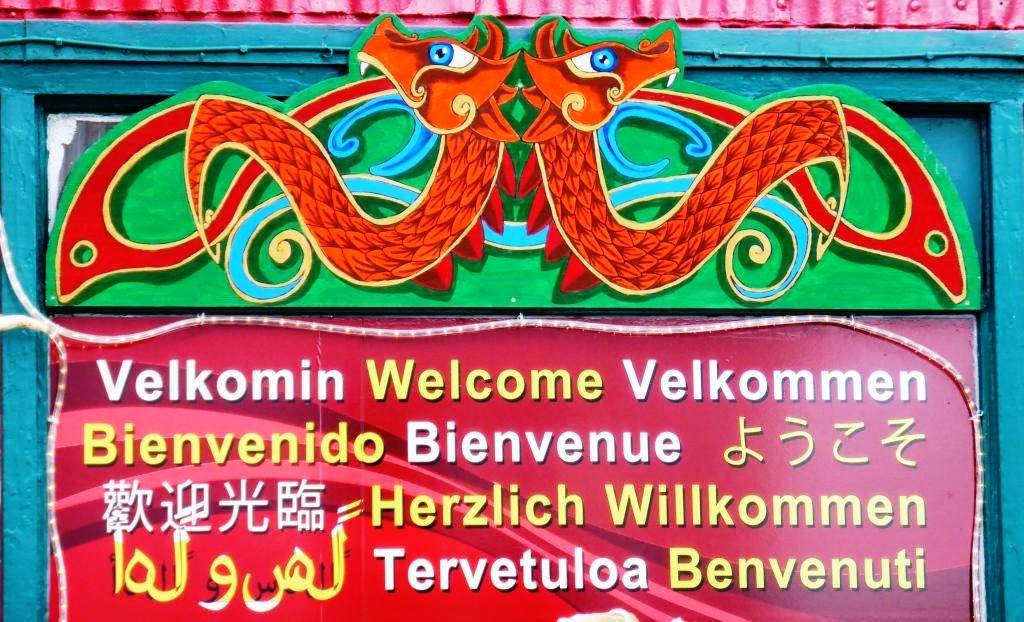AUSTRALIAN RESEARCH COUNCIL FUTURE FELLOWSHIP
UPDATE
‘Speaking my language: International speech acquisition in
Australia’
Written by Kim Woodland, Research Institute for Professional
Practice, Learning and Education for the RIPPLE
Update
In February, RIPPLE researcher and ARC Future Fellow,
Sharynne McLeod, and her colleagues, uploaded seven submissions to the Australian Senate Inquiry
into the prevalence of different types of speech, language and communication
disorders and speech pathology services in Australia. Their submissions were
also highlighted in a recent CSU Media release: Speech pathology services urgently needed. Speech Pathology Australia’s submission to the Inquiry
referenced the work Sharynne has undertaken as part of her Future Fellowship,
as well as the work her team has completed with ARC Discovery funding.
Sharynne has continued her work with data from Footprints
in Time: The Longitudinal Study of Indigenous Children. In March, Sharynne,
along with her RIPPLE-sponsored PhD student, Sarah Verdon, presented their work
to the Australian Institute for Aboriginal and Torres Strait Islander Studies
(AIATSIS) National Indigenous Studies conference held in Canberra. Their
presentation was titled Celebrating Indigenous Australian children’s
languages: Diversity, competence and support. Sharynne and Sarah were also
asked to write a paper for the Australian Government’s Department of Social
Services annual report on the LSIC, on longitudinal patterns of language use,
diversity, support and competence. As a result, both researchers have
participated in a number of radio and print interviews.
In April, Sharynne travelled to Ireland for a two-day
board meeting of the International Association of Logopedics and Phoniatrics.
She was also an invited speaker at the Irish Association of Speech and Language
Therapists Study Day in Dublin, where she spoke on Resources for supporting
multilingual children. Sharynne then travelled to Exeter in the UK to give
a presentation to the South West Specific Speech Sound Impairment Clinical
Excellence Network, entitled Assessing children’s speech: The big picture.
The Speech Pathology Australia National Conference was
held in Melbourne during May, and Sharynne, along with three of her PhD
students—Sarah Verdon, Sarah Masso, and
Suzanne Hopf—presented a range of papers, focusing on the speech of children
with cultural and linguistically diverse backgrounds, particularly within the
Asia Pacific region. The team took out two awards: see Awards and Success
Stories on p. 3.
In June, Sharynne and her PhD students—Sarah Verdon,
Sarah Masso and Suzanne Hopf—travelled to Stockholm, Sweden, to present papers
at the International Clinical Phonetics and Linguistics Association conference.
While in Stockholm, Sharynne and Sarah Verdon also hosted a meeting of the
International Expert Panel of Multilingual Children’s Speech on 11 June. The
panel members spoke 16 different languages in a professional capacity and had
worked in 25 different countries (including Slovenia, Iceland, Israel, and
Jamaica). She then travelled to Iceland in late June to present papers to
members of the Icelandic Association of Speech and Language Therapists (Félag
talmeinafræðinga á Íslandi), where she focused on multilingual children’s
speech acquisition, assessment, and intervention.
Further evidence of the international impact of
Sharynne’s research is her invitation to provide feedback on the World Health
Organization’s revisions to the International Classification of Diseases—for their eleventh revision which is due to be published in
2017. Sharynne was invited to critique the draft document on developmental
speech disorders, and has offered recommendations from the International Expert
Panel on Multilingual Children's Speech, as well as from other work she has
undertaken.
 |
| Icelandic Association of Speech and Language Therapists (Félag
talmeinafræðinga á Íslandi) |


































